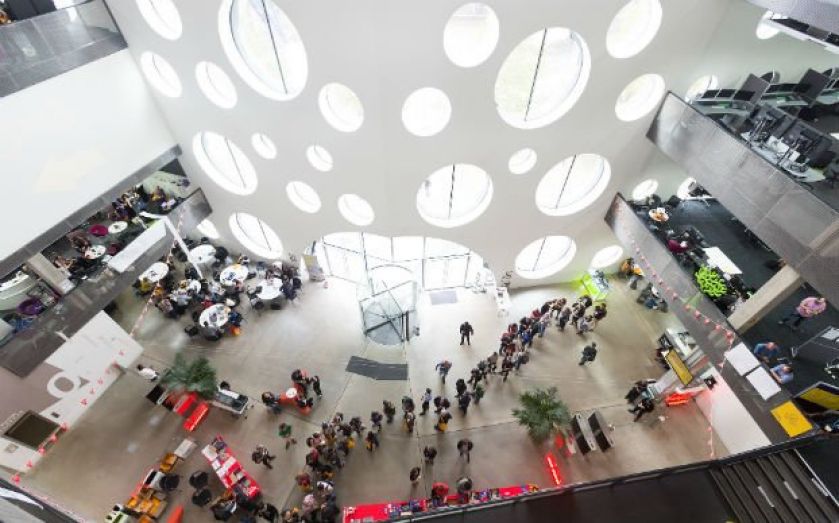London is helping to build the global open web of the future- but it faces more threats than ever before

As a leader in the tech for good space, London is home to some of the world’s most exciting initiatives, which are using technology to impact social, economic and educational change.
Funding and support bodies Nominet Trust and NESTA, are prime examples of organisations actively funding and supporting the imaginative use of technology to address complex social challenges.
Similarly, London-based organizations like Code Club and Technology Will Save Us, are also making impressive leaps forward in educating the next generation on how to build technology and teach the web.
That's why London was the ideal setting for MozFest, Mozilla' annual festival, which took place last weekend.
Mozfest brought together 1,600 experts, inventors, teachers, hackers, students, journalists, and web enthusiasts to build a free, open and more democratic internet.
But while people in London and around the world are making huge strides using the the web as a force to make people’s lives better, we are still at a critical point in the evolution of the internet.
In my opinion, the web faces more threats – and is becoming less open – than ever before.
You only have to glance at the press to read reports of government surveillance, the tracking of our every move by advertisers and social media web sites, the curtailing of free speech from authoritative regimes, and online censorship.
A "Cyberspace 2025" report by Microsoft, claims there will be upwards of 4.7 billion people online by 2025, 75 per cent of which will come from emerging economies. With such a vast number of people coming online, we must determine now if the Web will be a force for control, or a tool for independence.
There is a growing fear that future internet users will have little to do but post on social networks and consume media using apps, services and platforms, created and controlled by a just handful of companies.
We’re at a juncture: we have to decide whether we want to let governments and a few large companies control what we can do on the internet, or whether we want a web that is about freedom, independence and agency – web where we all benefit?
I believe we want the latter – a web where we are all citizens. To achieve this, we need to focus on three things:
Openness: We need to make sure that the web stays open. As a global public resource that is integral to modern life, its effectiveness depends entirely on access, interoperability, and transparency.
Decentralization: There is a clear and growing demand in emerging markets for content that reflects local language, culture, and economies. We need robust tools, affordable technology and education opportunities that empower everyone to produce content relevant to local needs.
And, we need an environment where entrepreneurs in emerging markets have a fair chance to compete with established sites from North America and Europe.
Literacy: Finally, we need to empower people with the digital literacy skills needed to build, not just consume, the web. Many organisations and academic institutions are paving the way with “learn to code” initiatives, but we need a bigger vision. We need everyone on the web to understand what’s possible. We need to treat digital literacy as a subject that is as important and universal as reading, writing and math.
The web is a global, distributed platform that has generated massive wealth, held governments to account, broken down barriers, and elevated cats to a prodigious level. Performing your job, electing your government, pursuing an education, talking to your grandchildren – all of these activities already and will increasingly take place on the web. Your life and your digital life are fast becoming the same thing. Being digitally literate will mean being in control.
This was a key focus for our event in London. Bringing together community members from 40 different countries, we want to shape the future of the open web.
We want to empower everyone to think actively about how you use the internet.
What do you want it to be? What can your organisation or company do to shape the open web? How can we together grow the web in developing countries that don’t just consume it, but make it and build it for the needs of their community?
Following what some organisations are already doing in London, and across the UK, I hope that more will follow their lead to build the global web of the future.